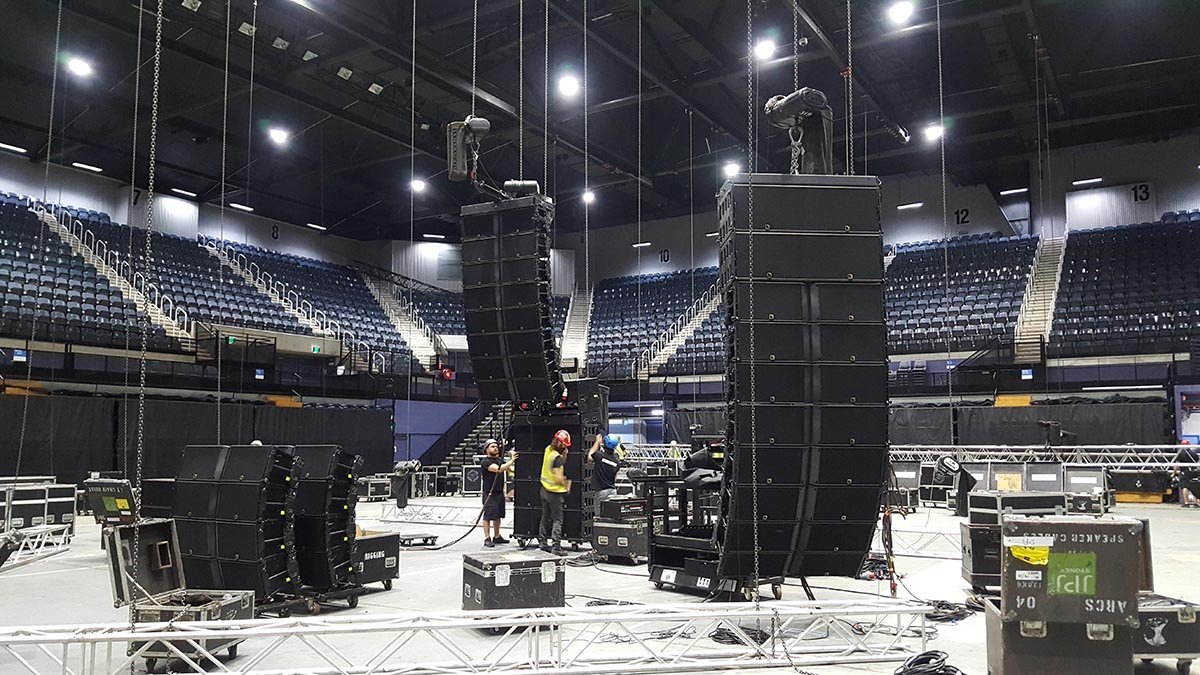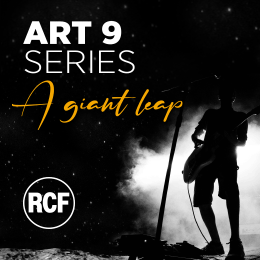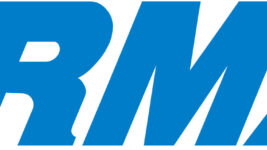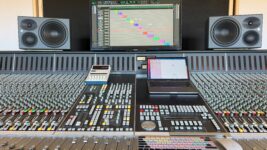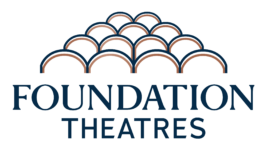Subscribe to CX E-News
Thousands of performers and spectators converged on the WIN Entertainment Centre last month, as the annual Southern Stars school arena show hit town.
More than 3000 student from primary and high schools in the southern schools region performed with the show also including soloists, a 500 piece choir, and orchestra and an indigenous dance company.
Students came from about 120 public schools as far away as Bourke, and the show was touted as the biggest show so far in Southern Stars’ 17-year history.
JPJ Audio provided all things audio with a system designed Bob Daniels and implemented by George Gorga whose biggest challenge was a large orchestra mainly comprising of students!
“It takes them a while to get used to being in the arena dealing with headphone monitoring, IEMs and the PA running but there’s a point, usually around dress rehearsal, when it all comes together,” he said. “I’m also dealing with a large number of non-professional vocalists but again, it all comes together in the end. Having said that, the musical standard of these kids is extremely high and during the public shows it’s easy to forget that some of these players and performers are only in primary school.”
The stage is set traditionally at one end, albeit a bit bigger than a standard stage, and primarily accommodates the orchestra, whilst the arena floor is the main performance area for soloists and dancers. The choir sit in the seating bank behind the stage.
“The PA is a central cluster hung above the floor centre,” explained George. “There are three positions; one facing forward and two straight out to the sides. It looks a bit odd as the centre PA is about two metres behind the side clusters but it works really well and they don’t get in the way of each other. The time alignment is ‘physically’ very close to start with and it’s seamless when you walk around the room.”
Jack Richardson, system tech for the event, remarked that this is the best sounding configuration he’s had heard in this venue. George admits he had a bit of an advantage in the fact that he only had to cover the seating from a centrally located PA, but insists a lot of the success was down to Bob Daniels’ design.
“Of course the L-Acoustics K2 system is amazing too,” George added. “It’s my favourite system at the moment. This is the first time we’ve used the K2 on this event and it was a real leap ahead in quality and impact.”
FOH George ran an Avid 96-channel Profile console plus a 48-channel DiGiCo SD11. On the Profile he used just about all of the available effects adding his standard TC Electronics M5000 reverb and a Smart C2 compressor over the mix buss.
“I use those pretty much all the time and although I could use a plugin for the C2, I’ve got the real thing and it just holds everything together in the mix,” said George. “In a situation like this show where it can be quite unpredictable, the C2 can be a life saver.”
Radio microphones were twenty-six systems of Shure Beta 58 with a couple doubling up as guitar packs and DPA 4088 headset systems. Orchestra microphones were assorted with George favouring dynamic microphones such as Shure 57 and 58’s for brass and woodwind.
“In this situation, they’re much easier to deal with when you have kids using them,” said George. “I still get the sound I want without using expensive condenser mics. With the constant turn around, the radio mic tech Bianca Martin and her volunteer student crew are kept very busy!”
Monitors were taken care of by Bob Daniels on a DiGiCo SD5with an Aviom headphone system for the orchestra and lots of Sennheiser IEM systems for the singers.
Subscribe
Published monthly since 1991, our famous AV industry magazine is free for download or pay for print. Subscribers also receive CX News, our free weekly email with the latest industry news and jobs.


